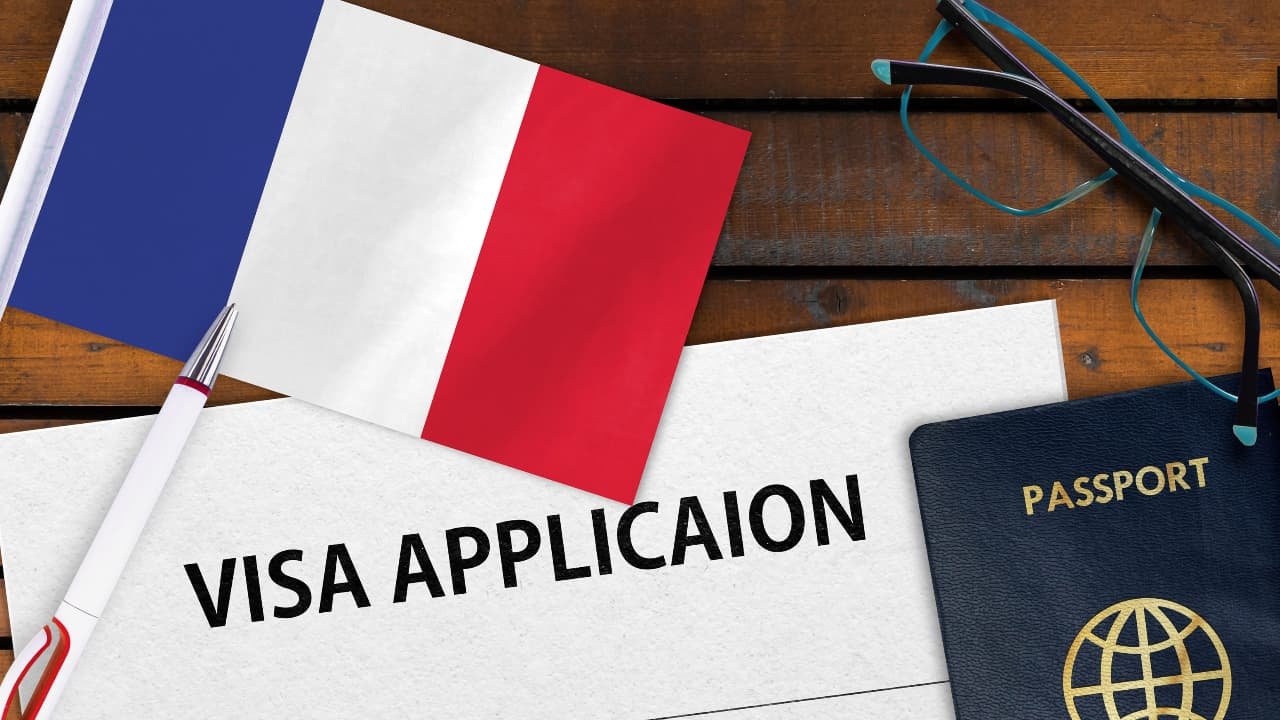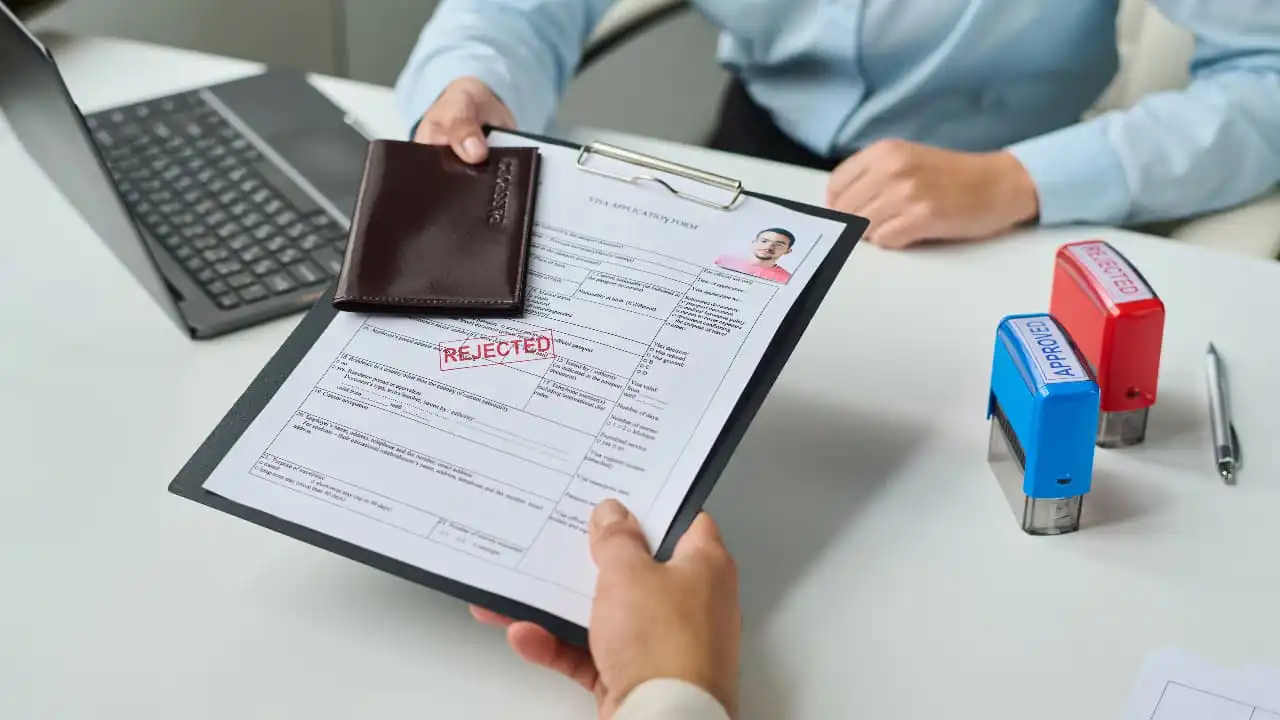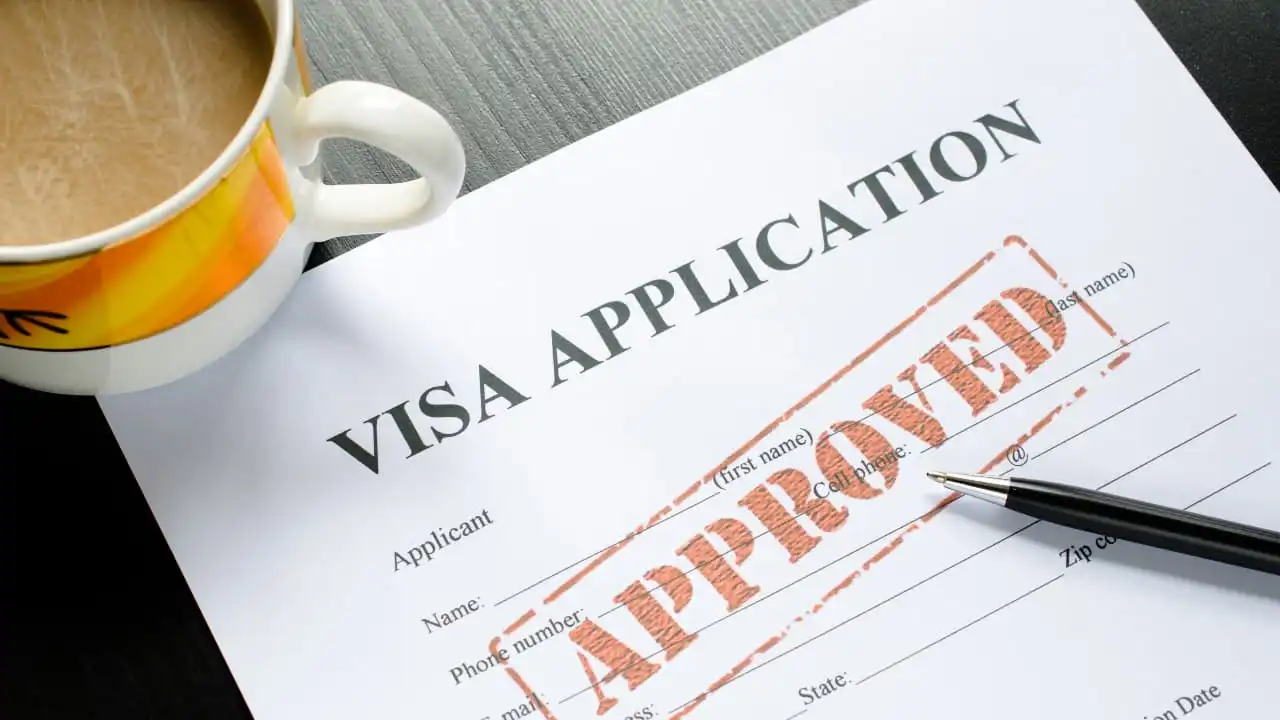If you’ve ever dreamed about living in France, whether to work, study, retire, or start fresh, you’re not alone. France isn’t just a place; it’s a lifestyle full of beauty, opportunity, and culture. But moving there isn’t as simple as packing your bags. You’ll need the right residency path, and trust me, picking the right one can save you months of stress.As someone who’s helped several friends navigate the French residency maze, I can tell you it’s easier when you break it down step by step. That’s exactly what we’ll do here.
How to Obtain Residency in France
To live in France long-term, you’ll typically start with a long-stay visa (over 90 days) and convert it into a residence permit after arrival. The right route depends on your reason for moving, work, study, family, or retirement, but the core process stays consistent across most situations.
Do You Need Residency? Understanding Visas vs. Residence Permits
Before jumping into the different paths to residency, it’s important to understand the difference between a visa and a residence permit. These two terms are often mixed up, but they play very different roles in your move to France.
A long-stay visa (often called a visa de long séjour or VLS) is your entry ticket into France if you plan to stay longer than 90 days. It’s issued by the French consulate in your home country and allows you to enter France legally for the purpose you’ve declared, work, study, family, etc.
Once you’re in France, you’ll usually need to validate this visa or convert it into a residence permit (also known as a carte de séjour). This permit gives you the right to legally stay and carry out activities (like working or studying) beyond the initial visa period.
There are also multi-year residence permits available if you meet certain conditions, and eventually, you may qualify for a 10-year carte de résident, which offers more stability.
A Quick Story That Might Help
One of my close friends, Sara, moved to France for a master’s program. She thought her student visa would be enough for her entire stay, but after arriving, she realized she had just 3 months to validate it and apply for a residence permit. Between classes and adjusting to life in a new country, she nearly missed the deadline. That small mistake almost cost her everything; she had to scramble to book an appointment at the prefecture and gather new documents on short notice.
What she learned (and later told me) was this: getting the visa is only the first step. Without following through on the residence permit process, you can quickly find yourself in legal trouble, even if you’ve done everything else right.
This is why it’s so important to treat your visa and residence permit as two parts of one continuous process. Ignoring that second part is one of the most common mistakes foreigners make when moving to France.
Residency Routes at a Glance
France offers a range of residency routes designed to match different life goals. Whether you’re planning to work, study, reunite with family, or enjoy your retirement in a peaceful countryside, there’s likely a pathway that fits your situation. What matters most is identifying which category you belong to and understanding the expectations tied to each route. This section will walk you through the key residency paths you should know about before planning your move.
Work and Professional Routes
One of the most common reasons people seek residency in France is for employment or business opportunities. If you’ve secured a job or are planning to launch a business in France, you might be eligible for a residence permit tied to work. The Talent Passport and EU Blue Card are two popular routes. These permits are designed for skilled professionals, entrepreneurs, researchers, and others who can contribute to the French economy. In most cases, these work-based permits are valid for up to four years and can lead to long-term residency later.
Self-employed individuals and business investors also have options under the entrepreneur or investment categories. France encourages economic activity by granting residency to those starting innovative businesses or making significant financial contributions. That said, the paperwork and validation process can be demanding, often requiring you to prove the viability of your business plan and meet specific financial thresholds.
Education as a Gateway
France has a long-standing reputation as a hub for quality higher education. For international students, the long-stay student visa serves as the first step toward residency. Once you are admitted into a recognized academic program, you can apply for a student visa that allows you to stay and study for more than 90 days.
This visa often comes with the ability to work part-time and access certain public benefits. After one year, you can typically extend your stay by applying for a multi-year residence permit. In some cases, students who graduate in France and secure a job offer that matches their academic background can switch to a work-based permit, making education a stepping stone to permanent residency.
Family Reunification
For individuals who have immediate family members legally living in France, family reunification provides a clear route to residency. This is especially common for spouses, dependent children, and sometimes elderly parents of French citizens or legal residents. The process usually starts with a visa application from your home country and continues with a residence permit application once you arrive in France.
The authorities often require proof of relationship, financial stability, and accommodation. While the process can take several months, this route is among the most stable and offers a direct path to longer-term residency, especially if your family ties are strong and ongoing.
Visitor and Retirement Pathways
Not everyone moves to France for work or school. Some people simply want to enjoy the slower pace of life, especially after retirement. France provides a special long-stay visitor visa for those who wish to live in the country without engaging in employment or study. Applicants must demonstrate that they have enough financial resources to support themselves and that they have suitable accommodation for the duration of their stay.
Though it doesn’t allow you to work, this visa can be renewed annually, making it a viable option for retirees or others who want to experience life in France without any professional obligations. It’s a peaceful route, but one that still requires careful planning, especially in proving your self-sufficiency.
Paths to Long-Term Stability
All of these residency routes can eventually lead to long-term options, such as the 10-year residence card. Most long-term cards are only issued after several years of uninterrupted legal stay and depend on factors like language proficiency, financial independence, and social integration.
What you choose now affects your path later. Whether you’re moving to France to chase a career, invest in a business, or enjoy retirement, understanding the available routes early on will help you make informed decisions and avoid costly missteps along the way.
Work-Based Residency Paths
If you’re planning to live and work in France, the country offers several work-based residency permits tailored to different types of professionals, from highly skilled workers to business founders. These permits are structured to attract talent while ensuring that applicants meet certain qualifications and contribute to the French economy.
Talent Passport and EU Blue Card
- Talent Passport is a multi-year residence permit meant for qualified professionals, researchers, artists, tech experts, and others who bring high-value skills. To qualify, you typically need a job offer with a certain salary threshold or a recognized professional profile.
- EU Blue Card is another route for non-EU nationals who have a higher education degree and a contract with a French employer. The salary must meet a minimum amount (often 1.5 times the average gross salary in France). Both of these permits offer the benefit of a 4-year renewable residency and allow you to bring your family along under a simplified process. They also provide faster access to long-term residence options down the line.
Entrepreneur and Investor Options
- If you’re planning to start a business or invest in France, there are residence permits available under the Talent Passport: Business Creation category. You’ll need to present a solid business plan and show financial backing, typically around €30,000 or more.
- Investors planning to make a substantial economic investment in France may also qualify under separate sub-categories, depending on the project’s size and nature.
In both cases, the French authorities evaluate the economic viability of your proposal and your ability to execute the plan. If approved, this type of permit also allows multi-year residency with renewal options.
Application and Next Steps
- Once you’ve secured a job or finalized your investment or business plan, you apply for a long-stay visa at the French consulate in your home country.
- After arriving in France, you have two months to validate or convert your visa into a residence permit.
- During this period, you’ll need to schedule an appointment at the prefecture, submit the required documents, and pay applicable fees (including tax stamps).
Work-based routes are among the most structured and offer clear long-term benefits, but they require detailed planning, accurate paperwork, and awareness of deadlines. Choosing the right permit based on your role and future goals will save you from delays and complications later.
Study in France (Student Route)
France is one of the top destinations for international students, offering a blend of high-quality education, rich culture, and affordable tuition compared to many other Western countries. If your goal is to study in France, the student visa is your first step toward temporary residency, with options to extend your stay after graduation.
Getting the Student Visa
To begin the process, you’ll need to secure admission to a recognized educational institution in France. Once accepted, you can apply for a long-stay student visa (called VLS-TS étudiant). This visa is valid for up to one year and allows you to live in France while studying full-time. One important step many students overlook is validating this visa within the first three months of arrival. This is done online and is mandatory to ensure your legal stay is recorded correctly.
This visa not only allows you to attend school but also gives limited permission to work part-time during your studies. You are allowed to work up to 964 hours per year, which can help you cover some living costs. Students also often qualify for housing aid and public healthcare, making the transition to life in France more manageable.
Staying After Graduation
Many international students want to stay in France after finishing their studies. If you complete a degree program and find a job that aligns with your education, you can apply to switch from a student visa to a work-based permit. In some cases, students can also apply for a temporary residence permit that allows them to stay an additional 12 months while seeking employment.
Another advantage of the student route is its potential to lead to long-term residency. If you’ve spent several years studying in France, that time often counts toward the five-year requirement needed to apply for a carte de résident, the long-term residency card.
The student route is one of the more flexible ways to build a future in France. It gives you time to adapt, explore opportunities, and decide whether you want to make France your permanent home. As long as you keep track of deadlines and maintain your enrollment, this path opens many doors for your long-term plans.
Family Reunification
France offers a structured and supportive pathway for families to reunite under its immigration policies. If you have close relatives already living legally in France, you may be eligible to apply for residency through family reunification. This route not only provides a legal way to join your loved ones but also lays the foundation for long-term residency and integration.
Who Qualifies for Family Reunification
- Spouses of French citizens or legal residents can apply for a long-stay visa that allows them to live in France and later convert it into a residence permit.
- Children under 18 of legal residents may also be eligible to join their parents under this process.
- In some cases, elderly parents of French citizens can apply for residency, though this route is more restrictive and requires financial and housing support from the sponsoring child.
To be considered, the family member in France must hold a valid residence permit and show proof of stable income, adequate housing, and the ability to support the incoming relative without relying on public assistance.
Steps in the Application Process
- The process begins with an application through OFII (French Office for Immigration and Integration). This includes submitting documents that prove your relationship (marriage certificate, birth certificate, etc.), financial stability, and suitable housing.
- If approved, the foreign family member applies for a long-stay visa in their country of residence.
- After arriving in France, the new resident must validate their visa and apply for a carte de séjour within the first two months.
This residence permit is typically valid for one year and is renewable. It also allows family members to work in France without needing a separate work permit, which is a significant advantage compared to some other visa types.
Family reunification plays an essential role in long-term settlement. Time spent on this permit counts toward the five-year requirement for permanent residency, and in the case of spouses of French citizens, it may even lead to naturalization after just a few years.
For many, reuniting with loved ones is the most meaningful reason to move. France recognizes this and provides a relatively accessible route, provided all documentation is in order and eligibility requirements are met
Private Stay, Retirement, and Visitor Route
Not everyone who moves to France is looking to work or study. For some, the goal is simply to enjoy a peaceful life, stay close to family, or spend extended time in a beautiful country. That’s where the visitor or retirement route comes into play. This option is ideal for those who don’t plan to take up employment in France but still want to live there legally for more than 90 days.
Who the Route is For
This residency option is commonly used by retirees, second-home owners, or individuals who wish to spend extended time in France without working. While it doesn’t allow you to earn an income in the country, it offers the opportunity to enjoy daily life in France at your own pace. It’s perfect for those looking to immerse themselves in the culture, explore the country, or simply settle into a slower, more relaxed lifestyle.
To apply, you’ll need to show that you can support yourself financially throughout your stay. This usually means demonstrating proof of steady income or savings. The French authorities want to ensure that visitors under this category won’t rely on public assistance. You’ll also need to show evidence of accommodation, whether you’re renting a home or staying with family.
Visa and Residency Process
The first step is to apply for a long-stay visa marked as “visitor” or “retired person.” This must be done from your home country before arriving in France. Once granted, the visa allows you to stay in France for up to a year. After entering France, the visa must be validated through the appropriate online portal or prefecture, depending on your specific situation.
This route doesn’t offer a fast track to permanent residency, but it can be renewed annually. Over time, if you meet the conditions for continued stay, such as having a stable income, health insurance, and proper housing, you may eventually become eligible for longer-term residency options.
France doesn’t offer a “golden visa” like some other European countries. So, moving there just by investing in property or real estate won’t grant you residency. Instead, the retirement and private stay route is about showing personal stability and commitment to living in France respectfully and legally. It’s a steady, peaceful way to make France your home.
Working Holiday Visa (If Applicable)
The working holiday visa is a unique opportunity that allows young travelers to explore France while being able to work legally during their stay. It’s designed for citizens of specific countries that have bilateral agreements with France. While not open to everyone, it offers a flexible and enriching way to live in France for up to a year without the need for a job offer or long-term study plan.
Eligibility and Purpose
To qualify for the working holiday visa, you generally need to be between the ages of 18 and 30, although in some cases the upper limit extends to 35 depending on your nationality. This visa is not meant for long-term migration but rather for cultural exchange. You’re allowed to work and travel freely across France and even other Schengen countries during your stay.
The idea behind this program is to give young people a chance to experience life in a new country, support themselves through short-term work, and develop cross-cultural connections. It’s often used by recent graduates or young professionals who want a break before starting a career. While not a direct path to permanent residency, the time spent on this visa can offer insight into living in France and may inspire more long-term goals later on.
Visa Conditions and Activities Allowed
The working holiday visa is valid for 12 months and cannot be extended or renewed. It allows you to take up temporary employment without the need for a separate work permit. This can include seasonal jobs, internships, or short-term contracts in various industries such as hospitality, tourism, or even education.
You are also allowed to take language courses or enroll in part-time educational programs while on this visa, although it’s not intended for full-time academic study. Health insurance coverage is mandatory for the entire duration of your stay, and proof of financial support is usually required when applying for the visa from your home country.
While this visa doesn’t count toward permanent residency or long-term permits, it offers a real taste of life in France. Many people who come on this program later return under other routes like work, study, or family reunification. If you meet the eligibility requirements and are looking for a chance to live in France with flexibility, this could be your ideal starting point.
Long-Term Residency , The 10-Year Carte de Résident
For those who plan to make France their permanent home, the carte de résident is a major milestone. This long-term residence card is valid for 10 years and offers more stability than most temporary permits. It gives you the right to live, work, and access services in France without the frequent renewals that come with shorter permits.
Who Can Apply and When
To qualify for the carte de résident, you typically need to have lived in France legally for five consecutive years. During this time, you should have held valid residence permits and maintained a stable, law-abiding life. In some cases, the five-year requirement can be shortened. For example, spouses of French citizens may apply after just three years of marriage and residence in France. Parents of French children or individuals with refugee status may also be eligible sooner.
The key to eligibility is demonstrating continuous residence and integration into French society. This means showing that you’ve lived in France regularly, paid taxes, followed the law, and made efforts to become part of the community.
Application Requirements and Process
When applying for the carte de résident, you’ll need to provide several documents, including proof of your current residence status, income, accommodation, and health insurance. One of the newer and more important elements is language proficiency. France has raised its expectations in recent years, and applicants must now show a basic understanding of the French language, typically equivalent to a lower secondary school level.
You also need to pass an integration assessment, which includes knowledge of French values, culture, and laws. This process ensures that applicants are not only physically living in France but also participating in its social and civic life.
Once approved, the 10-year card gives you freedom from annual renewals and opens the door to more long-term planning. You can travel more freely, access social benefits, and apply for French citizenship later if you wish.
The carte de résident is often seen as a reward for commitment and contribution to life in France. It marks the shift from being a temporary visitor to a stable, long-term resident with full rights and responsibilities.
Arrival and Validation Process
After receiving your long-stay visa and landing in France, the journey isn’t quite complete. One of the most overlooked yet essential steps is the validation and follow-up process that ensures your legal status is properly registered with the French authorities. Skipping or delaying this step can cause serious legal complications, even if your visa is still valid on paper.
What You Need to Do Upon Arrival
For most visa types, particularly the VLS-TS (long-stay visa valid as a residence permit), you must validate your visa within the first three months of arriving in France. This is done online through the official ANEF (Administration Numérique des Étrangers en France) platform. The process includes providing your visa number, arrival details, a digital photo, your address in France, and paying a fee using a tax stamp (timbre fiscal), which can be bought online or at authorized shops.
Some visa categories may not require online validation but instead need an in-person appointment at the local prefecture, especially if you hold a visa that must be converted into a separate residence permit. The prefecture visit usually involves submitting your original documents, proof of address, financial resources, health insurance, and a passport with the visa stamp.
Deadlines and Appointments
It’s critical to know your deadlines. For most work, family, or student visas, you have up to two months to apply for a residence permit or validate your visa. Missing these windows could mean having to restart the entire process from your home country. That includes reapplying for a visa, which can take months and possibly delay your plans altogether.
Appointments at prefectures are often hard to get on short notice, especially in larger cities. That’s why many expats advise booking your appointment as soon as you arrive, even if your validation deadline seems far away. Preparing your documents early, like translated certificates, housing proof, and insurance, is equally important to avoid last-minute issues.
Completing your visa validation or residence permit application smoothly sets the tone for the rest of your stay in France. It’s a critical checkpoint that confirms your legal right to remain, access services, and apply for future renewals or upgrades in your residency status. Starting off on the right foot here helps ensure you can build a stable and stress-free life in France.
Integrations and New Language Requirements
One of the key parts of living in France long-term is proving that you are integrating well into society. France places a strong emphasis on cultural and linguistic integration, and this plays a major role in whether your residency is renewed or upgraded over time. In recent years, the requirements around this have become more formal and more demanding, especially for those applying for long-term residence or citizenship.
Why Integration Matters
Integration isn’t just about speaking French. It’s about participating in society, understanding local values, and showing that you’re committed to being part of the community. The government uses several tools to assess integration, such as interviews, documentation reviews, and sometimes even language and civic tests. For first-time applicants, especially those on family, student, or visitor visas, early efforts to learn the language and understand French life can make a big difference.
When applying for a 10-year carte de résident or for French citizenship, you’ll need to show a clear record of social involvement, clean legal history, financial independence, and a basic understanding of how French society works. These expectations are not just formalities; they’re meant to ensure that residents are truly prepared for life in France on all levels.
Language Testing and Educational Expectations
Recent changes have made language skills a more formal requirement. To apply for long-term residency, you now need to prove that you’ve reached at least A2 level in French, which is similar to the lower level of a high school education. This means being able to hold a basic conversation, understand everyday vocabulary, and manage common situations like going to the doctor or handling administrative tasks.
To prove your level, you may need to pass a language exam or submit a recognized certificate from an approved language institution. In some cases, your local prefecture might require you to attend an integration course or language class as part of your application.
These steps are not meant to discourage you; they are designed to help you succeed in the long run. Being able to communicate confidently in French and participate in your community makes daily life smoother and opens up more opportunities. Whether you’re applying for a renewal, a long-term card, or citizenship later, strong language and cultural understanding will always be on your side.
Naturalization (Path to Citizenship)
For many who begin their journey with temporary residency, the ultimate goal is often French citizenship. Becoming a naturalized citizen of France opens the door to full civic rights, including voting, holding public office, and traveling freely within the European Union. But this final step comes with its own set of conditions, paperwork, and expectations that you need to fully understand before applying.
When and How You Can Apply
In most cases, you can apply for naturalization after five years of legal residence in France. This period includes time spent on valid long-stay visas and residence permits, as long as there are no breaks in your stay. Some people qualify even sooner. For example, spouses of French citizens can apply after three years of marriage and cohabitation in France, provided the relationship is ongoing and stable. Graduates from French universities who have worked in France after completing their studies may also benefit from a reduced waiting period.
The application is submitted to your local prefecture, and the process can take several months, sometimes even longer. During this time, your file will be reviewed for completeness, accuracy, and compliance with the French values and integration standards. Any inconsistencies or missing documents can delay or even reject the application, so thorough preparation is essential.
What Is Expected From You
French authorities want to see clear signs that you’re not only living in France but fully integrating into society. You must demonstrate stable income, a clean criminal record, and familiarity with French culture and history. Language is also a major component. You’ll need to show at least B1 level proficiency in French, which is a step above the level required for residency. This includes the ability to handle more complex conversations and understand written materials.
Additionally, you’ll attend a formal interview where you’re asked questions about your life in France, your values, and your motivations for becoming a citizen. This is not a test in the traditional sense, but rather a conversation aimed at assessing your readiness for full participation in French civic life.
If your application is approved, you’ll be invited to a citizenship ceremony where you officially become a French citizen. It’s a powerful moment that marks the end of one journey and the beginning of another, this time, not just as a resident, but as a full and equal member of French society.
Quick Comparison Table
Choosing the right path to residency in France depends on your personal goals, whether that’s building a career, studying, joining a family, or enjoying retirement. Each route has its own entry rules, benefits, and limitations. This section gives you a quick, clear comparison so you can understand which route suits your situation best.
Overview of Residency Options
Residency options in France range from short-term permits like the student visa or working holiday visa to more stable, long-term permits like the Talent Passport or carte de résident. Some permits allow you to work immediately, while others focus more on lifestyle or family needs. The level of paperwork, renewal frequency, and eligibility can vary widely, so comparing them side by side helps avoid confusion.
If you’re coming for work and already have a job offer, the Talent Passport or EU Blue Card is often the most efficient route. For students, the visa opens doors that can lead to longer-term options after graduation. Those with family ties in France can join through the reunification process, and people who want to live peacefully without working can take the visitor or retirement path. Over time, many of these paths can lead to the coveted 10-year residence card.
Comparison Table of France Residency Routes
| Residency Route | Eligibility | Work Rights | Initial Validity | Path to Long-Term Stay |
| Talent Passport | High-skilled job or entrepreneur | Full work rights | Up to 4 years | Yes |
| Student Visa | Enrolled in a French institution | Part-time allowed | 1 year (renewable) | Yes (with job transition) |
| Family Reunification | Spouse/child of a legal French resident | Yes | 1 year (renewable) | Yes |
| Visitor/Retirement | Financially self-sufficient, no job intent | No | 1 year (renewable) | Possible |
| Working Holiday Visa | Specific nationality, age 18–30/35 | Limited short-term | 12 months | No |
| Carte de Résident | 5+ years legal stay, integration proof | Yes | 10 years | Yes (long-term security) |
This comparison helps you quickly match your current profile with the right visa and plan your next steps. Whether you’re starting a career, pursuing education, or looking for a peaceful lifestyle, there’s a legal and structured path available in France.
Final Thoughts
Getting residency in France isn’t just about paperwork; it’s about choosing the right path that fits your life goals. Whether you’re building a career, reuniting with family, or simply looking for a peaceful place to retire, France offers a structured way forward. The key is understanding the steps, meeting the requirements, and staying organized throughout the process. With patience and preparation, your dream of living in France can become a lasting reality. No matter which route you choose, taking that first step with clarity makes the rest of the journey much smoother and more rewarding
Get in Touch With Us
For more such information get in contact with us and find yourself a reliable guide through this tricky journey.
FAQs and Tips
Understanding French residency laws can feel overwhelming, especially with so many routes and rules. Here are some frequently asked questions that come up often, along with clear answers to help you make informed decisions as you plan your move.
When should I start the application process for a French visa?
Ideally, you should start the visa application process at least three months before your planned travel date. This gives you enough time to gather documents, attend appointments, and deal with unexpected delays. Applying early also improves your chances of getting a favorable decision before your intended arrival.
Which is the easiest route to residency in France?
There is no one-size-fits-all “easy” route. The best option depends on your personal situation. If you have a job offer, the Talent Passport or EU Blue Card is straightforward. If you’re a student, the education route offers flexibility. For those with family in France, family reunification is often the smoothest. Each route has its own rules, so your background determines what’s simplest for you.
Do I need health insurance to apply for a residence permit?
Yes. Private or public health insurance is required for almost all long-stay visa and residence permit applications. The French government wants to ensure that you won’t become a burden on the healthcare system. Your insurance must cover the full length of your stay and meet minimum coverage requirements.
Can I switch from one residency type to another while in France?
In many cases, yes. For example, a student can switch to a work-based residence permit after graduation if they secure a relevant job. However, the switch must be made legally and within the correct timeframe, often before your current permit expires. Always check with the local prefecture or legal advisor before making any changes.
How long does it take to get permanent residency or citizenship?
To apply for permanent residency (carte de résident), you usually need five years of continuous legal stay. For citizenship, it’s also five years, though some exceptions allow earlier applications, such as spouses of French citizens or those who completed higher education in France. Language skills, integration, and legal history play a big role in both.
What happens if I overstay my visa or miss a validation deadline?
Overstaying or missing deadlines can lead to serious issues, including fines, visa cancellation, or bans on re-entry. Always validate your visa on time, respect local rules, and maintain updated documentation to avoid any legal troubles.





